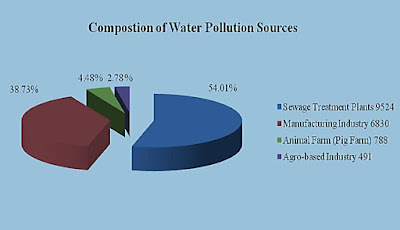Water Security - Catchment to Consumers
According to many UN agency reports and research findings, the evidence is compelling that achieving the Sustainable Development Goals for water and sanitation would trigger a major leap forward in human development:
- Water and sanitation are essential in achieving all the SDGs (Sustainable Development Goals)
- Investment in water supply yields an average economic return of $4.4 to $1
- Investment in sanitation yields an average economic return of $9.1 to $1
- Human Development is more closely linked to access to water and sanitation than other development drivers UNDP has examined, including spending on health or education, and access to energy services.
Availability of water is certainly a concern for some countries. It is, first and foremost, a crisis of governance and thus governance reform must be a key pillar of any strategic approach to addressing the water availability crisis.
Water challenges will increase significantly in the coming years.
Continuing population growth and rising incomes will lead to greater water consumption, as well as more waste.
The urban population in developing countries will grow dramatically, generating demand well beyond the capacity of already inadequate water supply and sanitation infrastructure and services.
According to the UN World Water Development Report; by 2050, at least one in four people is likely to live in a country affected by chronic or recurring shortages of freshwater.
Water Pollution
Virtually all goods-producing activities generate pollutants as unwanted by-products.
The most important water contaminants created by human activities are microbial pathogens, nutrients, oxygen-consuming materials, heavy metals and persistent organic matter, as well as suspended sediments, pesticides and much of it from non-point sources. Heat, which raises the temperature of the receiving water, can also be a pollutant. Pollutants are typically the cause of major water quality degradation around the world.
Virtually all goods-producing activities generate pollutants as unwanted by-products.
The most important water contaminants created by human activities are microbial pathogens, nutrients, oxygen-consuming materials, heavy metals and persistent organic matter, as well as suspended sediments, pesticides and much of it from non-point sources. Heat, which raises the temperature of the receiving water, can also be a pollutant. Pollutants are typically the cause of major water quality degradation around the world.
Globally, the most prevalent water quality problem is eutrophication, a result of high-nutrient loads (mainly phosphorus and nitrogen), which substantially impairs beneficial uses of water.
Projected food production needs and increasing wastewater effluents associated with an increasing population over the next three decades suggest a 10%-15% increase in the river input of nitrogen loads into coastal ecosystems, continuing the trend observed during 1970-95.
• More than 80% of sewage in developing countries is discharged untreated, polluting rivers, lakes and coastal areas.
• Many industries – some of them known to be heavily polluting (such as leather and chemicals) – are moving from high-income countries to emerging market economies.
• Despite improvements in some regions, water pollution is on the rise globally.
Some Best Practices
The International Water Association or IWA developed the Bonn Charter in 2004 on Safe Drinking Water. The key principles outlined by the charter which are imperative to safe drinking water supply are as follows:
- Management of the whole water supply chain should always be set in the context of management of the whole water cycle
- Systems to ensure drinking water quality should not be based solely on end-of-pipe verification (testing against predetermined standards). Rather, management control systems should be implemented to assess risks at all points throughout water supply systems and to manage such risks.
- Such an integrated approach requires close co-operation and partnership between all stakeholders including governments, independent regulatory authorities, water suppliers, local public authorities, health agencies, environmental agencies, land users, contractors, plumbers and manufacturers of relevant materials and products, and consumers themselves.
- Open, transparent and honest communication between all stakeholders is essential to developing trust. It contributes to the development of effective water supply systems.
- The roles and responsibilities of the different institutions contributing to the delivery of safe and reliable drinking water need to be clearly defined and ensure complete coverage of the system from catchment to consumer. Governments should establish the legal and institutional arrangements necessary to assign appropriate responsibilities among the various parties.
- The way in which decisions are made relating to standards for the quality and reliability of water supplies should be transparent.
- Water should be safe, reliable and aesthetically acceptable. In progressively realising the goals, however, the standards applied may legitimately vary from location to location and over time.
- The price of water should be set so that it does not prevent consumers from obtaining water of sufficient quantity and quality to meet fundamental domestic needs
- Any system for assuring drinking water quality should:
- Be based on the best available scientific evidence; and
- Be sufficiently flexible to take account of the different legal, institutional, cultural and socio-economic situations of different countries;
Despite mounting evidence that we have passed the tipping point towards an irreversible climate change, Malaysia does not have clear policies on Climate Change or Sustainable Development. We have paid dearly for that this year with the water crisis and some years back due to flooding in many urban areas like Kota Tinggi, Kuala Lumpur, Kelantan and recently Sarawak.
All other national policies or action plans and programmes must be guided and governed by the National Sustainable Development and Climate Change Policy.
Budget must be adequately allocated for the EFFECTIVE AND EFFICIENT implementation of this policy. Unnecessary funding for up-keeping of non-native animal species, building fossil fuel power plants and massive road infrastructures does not help but further aggravate already poorly managed public funding.



Comments
Post a Comment